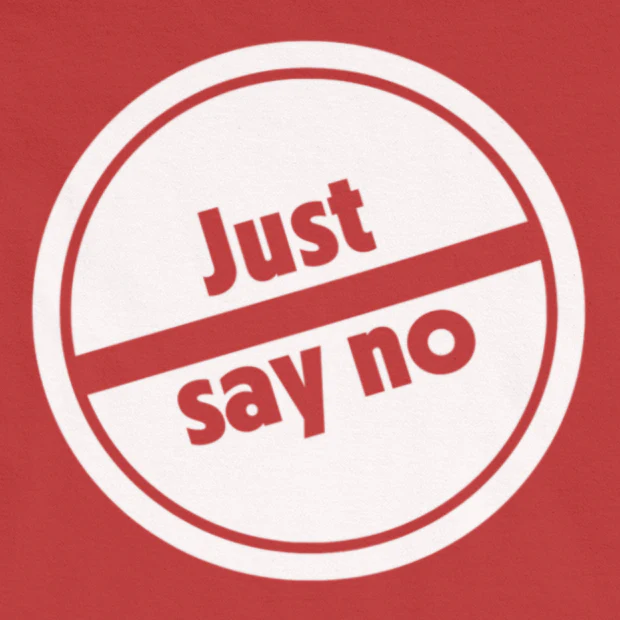Adolescent Addiction
“Just Say No” is an inspirational quote often used in organizations such as D.A.R.E.
January 26, 2023
In their adolescent years, many feel the want or need to experiment with alcohol and drugs. Unfortunately, teenagers don’t often link their actions to consequences. Teens have a tendency of thinking that they are indestructible and immune to the problems that others experience. While some experiment and stop, or occasionally use without any real repercussions or problems, many suffer from addiction. The problem with addiction is that most don’t even know that they’re addicted to something. Addiction is when one develops a dependency on something, whether it be drugs, alcohol, or something that is as ordinary as coffee. It’s difficult to determine which adolescents are going to experiment and quit or become addicted. However, teens at risk for developing a dependency on alcohol or drugs include those with a family history of substance use problems, those who are depressed, those with low self-esteem, and those who feel like they don’t fit in or are out of the mainstream.
Teenagers use a variety of substances, both legal and illegal. Some legal substances which teens come across include alcohol, prescribed medications, inhalants (fumes from glues, aerosols, and solvents), and over-the-counter cough, cold, and diet medicines. Some illegal substances which teens get ahold of include marijuana, or pot, stimulants, LSD, PCP, opiates or opioid painkillers, and designer drugs. The use of illegal drugs is increasing, especially among younger teens. Data shows that the average age for marijuana use is fourteen, and alcohol use begins at the age of twelve.
Substance use is associated with a variety of negative consequences. Some of these consequences include continued use later in life, failure in school, and poor judgment which can lead to accidents and violent or harmful tendencies.
Some signs which may be present if a teen is using substances are separated into different categories; physical, emotional, family, school, and social problems. The physical signs include fatigue, repeated health complaints, red and glazed eyes, and a lasting cough. The emotional signs include a change in personality, sudden mood changes, irritability, irresponsible behavior, low self-esteem, poor judgment, depression, and a lack of interest. The family aspect includes starting arguments, breaking rules, or completely withdrawing. School-related signs of substance use include decreased interest, negative attitude, sudden drops in grades, and many absences which lead to truancy, and discipline problems. The social aspect of substance use signs includes new friends who seem uninterested in standard home or school activities, issues with the law, and changes to less conventional styles in dress and music.
If someone has or shows signs of having an addiction there are many ways for them to seek help. Many places have emergency numbers to call and there are several rehab centers available.

